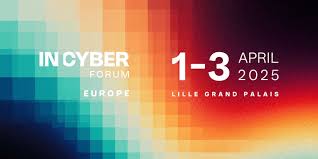Posted on July 3, 2017 at 4:32 PM
Kaspersky Turns Over Source Code to the US Government
Several governments have already demanded that private tech companies share their source code with them. The US is no exception, and in order to do business, companies are going to have to agree.
Eugene Kaspersky, the CEO of Kaspersky Labs, has stated that he will accept this ultimatum. His intention is to do anything that he has to in order to prove that Kaspersky Labs doesn’t have malicious intents. This is a direct consequence of the US Senate’s proposal to prohibit the use of Kaspersky Lab’s software platforms. The part of a proposal is that any network between the US agencies and Kaspersky platforms are severed immediately.
Kaspersky’s reply was that he is willing to testify before the Senate as well if that will help with proving trustworthiness.
This all started because of the opinion in Congress and among other administration officials which claims that Kaspersky Lab cannot be trusted with the protection of critical infrastructure. Since Kaspersky Lab is a Russian company, the FBI has had suspicions about their connection to the Russian government for years.
In fact, they were known to be a go-between when it comes to the FBI and Moscow, but the exact nature of their relationship to Russian government can’t be known. After all, Kaspersky Lab is a private company, and their own spokesperson has stated that they have never helped any government with cyber-espionage, nor are they planning to.
Nikolay Nikiforov, the Russian Communications Minister, has commented on the proposal as well. He stated that any political sanctions found to be unilateral in nature would provoke retaliation from Russia. Their government uses a lot of American software and hardware, even when it comes to sensitive areas.
Another thing that should be taken into consideration is that the US is currently very distrustful when it comes to the Russian government. The reason for this is the Russian alleged impact on the US election from last year. If suspicious ties to Trump’s campaign are added here, it is clear why everyone is on edge about the situation.
However, even with the situation being like that, the demanding source code is a very risky action, especially since the Russian government has done the same. They want access to products like antivirus apps, firewalls, and even encryption software of multiple companies. Those include McAfee, Cisco, SAP, Hewlett-Packard Enterprise, and IBM, who have agreed to this, as well as many others.
Symantec, for example, is the one of those who refused to give in to these requests. Their explanation is that their products’ integrity would be at risk if they accepted the Russian terms. No matter which government is asking for the source code access, the risks are pretty much the same.
This means that the governments will get the chance to find security flaws. Another thing that has had everyone on edge are multiple allegations that Russia keeps cyber-invading the US. From Yahoo email breach to the US elections, and further. The US was also found to have many dirty secrets, especially when it comes to the cyber-weapons.
Recent leaks have dumped some major tools online, which started the ransomware attack wave. Nobody knows just how long is this going to last, or does it even come close to uncovering all of the US cyber-secrets.
The point is that neither of these two governments has proved that they can be trusted with source code access. However, the US government says that Kaspersky Labs being open to sharing the code is not a good sign, and neither is the fact that US companies will do the same in Russia. It is the same situation like ransom demands – you should not pay them, even if they ask you to.











